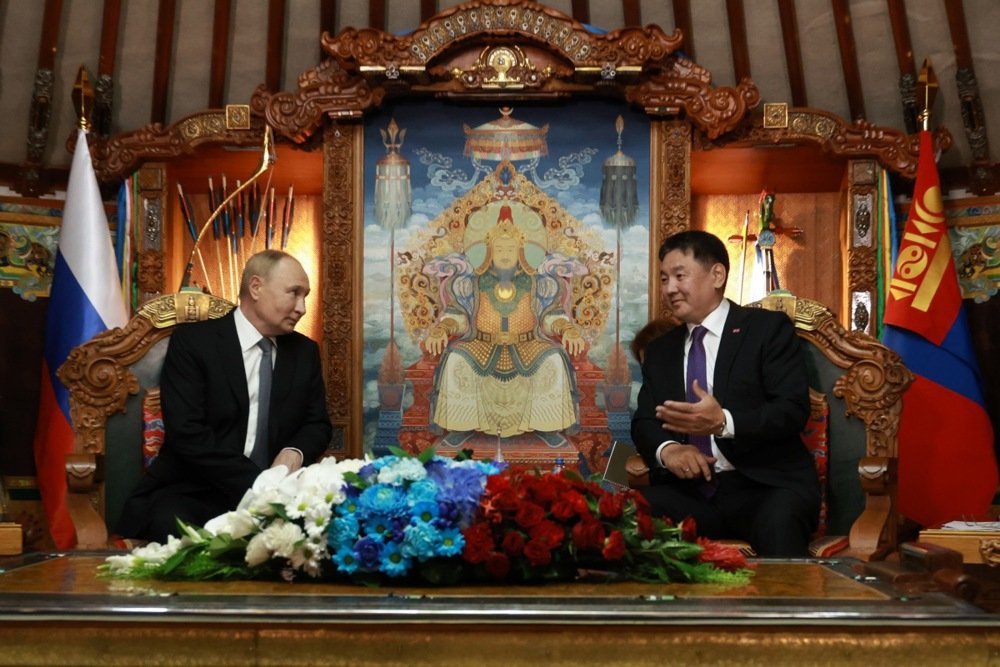
Vladimir Putin meets with Mongolian President Ukhnaagiin Khurelsukh during his visit to Ulaanbaatar, Mongolia on Tuesday. Photo: EPA-EFE/VYACHESLAV PROKOFIEV / SPUTNIK / KREMLIN POOL / POOL
Vladimir Putin arrived in Vladivostok in Russia’s Far East on Tuesday evening following a brief state visit to Mongolia, during which the country’s authorities declined to act on an international warrant issued for his arrest by the International Criminal Court (ICC), TASS reported.
Rather than being arrested upon his arrival in Ulaanbaatar, Putin was given a lavish welcome to Mongolia on Tuesday and appeared unconcerned by the fact that as a signatory to the Rome Treaty and a member of the ICC, Mongolia has a legal obligation to arrest him.
The ICC issued an arrest warrant for Putin in March 2023 in connection with the forced deportation of Ukrainian children from territories occupied by Russia, which the ICC said amounted to a war crime.
Explaining the country’s decision not to act on the ICC warrant, a Mongolian government spokesperson told POLITICO on Tuesday that the country found itself in a tough spot due to its energy dependence on its immediate neighbours — Russia and China — for 95% of its petroleum products.
“The Mongolian government’s failure to carry out the binding ICC arrest warrant for Putin is a heavy blow to the International Criminal Court and the international criminal justice system,” Ukrainian Foreign Ministry spokesperson Heorhii Tykhii wrote on X, warning Mongolia that it would face “consequences” for allowing an “indicted criminal to escape justice”, and suggesting that the country now shared “responsibility for his war crimes”.
Putin’s visit to Mongolia was evidence of “the breakdown of the entire system of international law”, former Ukrainian Foreign Minister Volodymyr Ohryzko told Novaya Gazeta Europe on Tuesday, adding that Putin was likely to continue visiting ICC states in “the Global South” that are dependent on China and Russia after demonstrating that the Rome Statute can be ignored.
While some experts predicted that Mongolia could face prosecution over its inaction, Ohryzko warned that the Rome Statute has “certain points” that “allow a warrant to be disregarded in certain circumstances”. Article 98 of the Rome Statute reads that the ICC may not proceed with a request for surrender which would require a state “to act inconsistently with its obligations under international agreements” or its obligations with respect to diplomatic immunity.
“Mongolians can just say: we have a special relationship with Russia, our strategic partner,” Ohryzko said, adding that Mongolia could also use Putin’s diplomatic immunity as an excuse. “This is a bad precedent that is bound to be repeated,” Ohryzko concluded.
Still, even if Mongolia is prosecuted by the ICC for its failure to arrest Putin, it will face no “serious consequences, such as sanctions,” Tamás Hoffmann, senior research fellow at the Institute for Legal Studies, told POLITICO.
